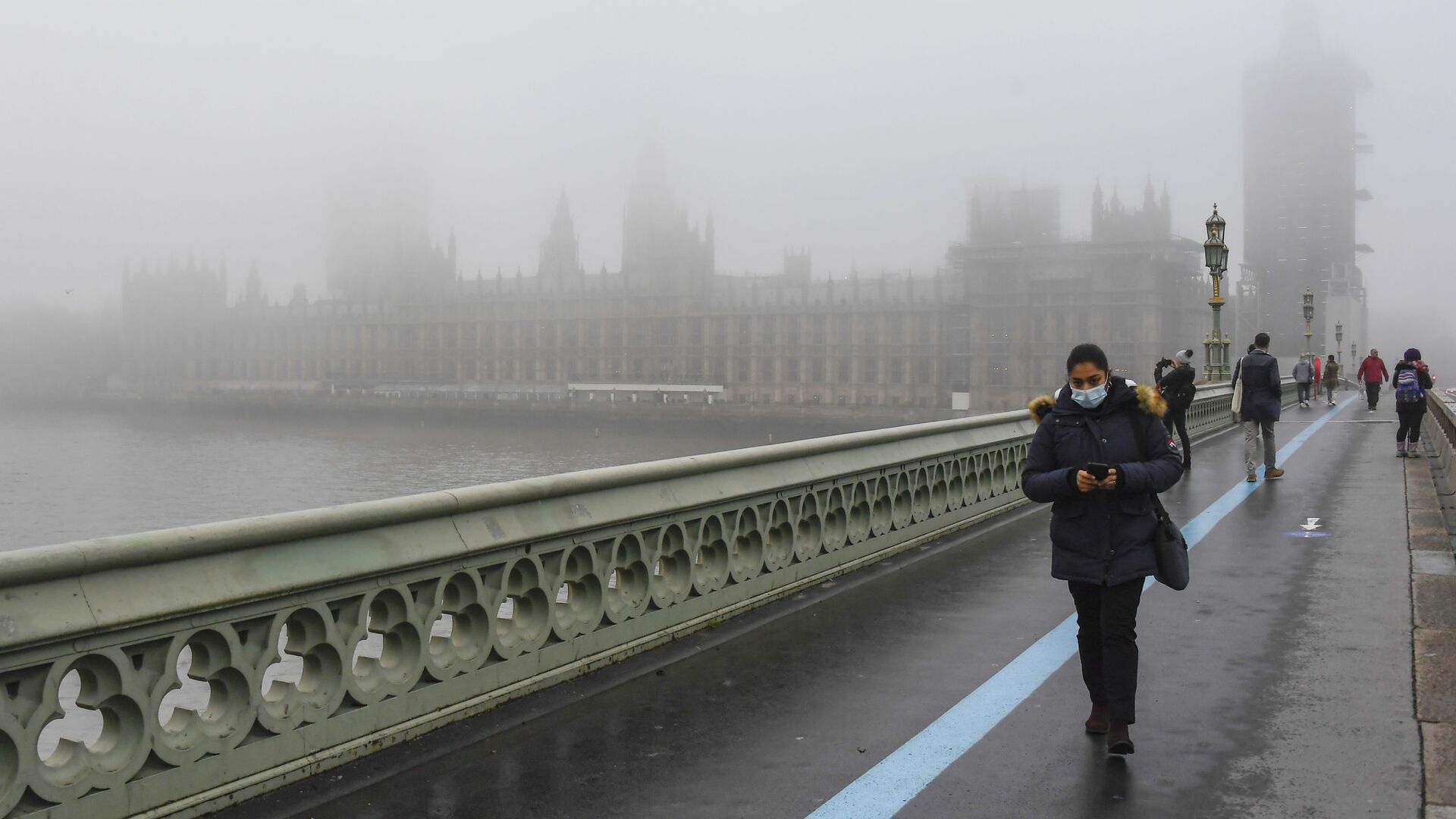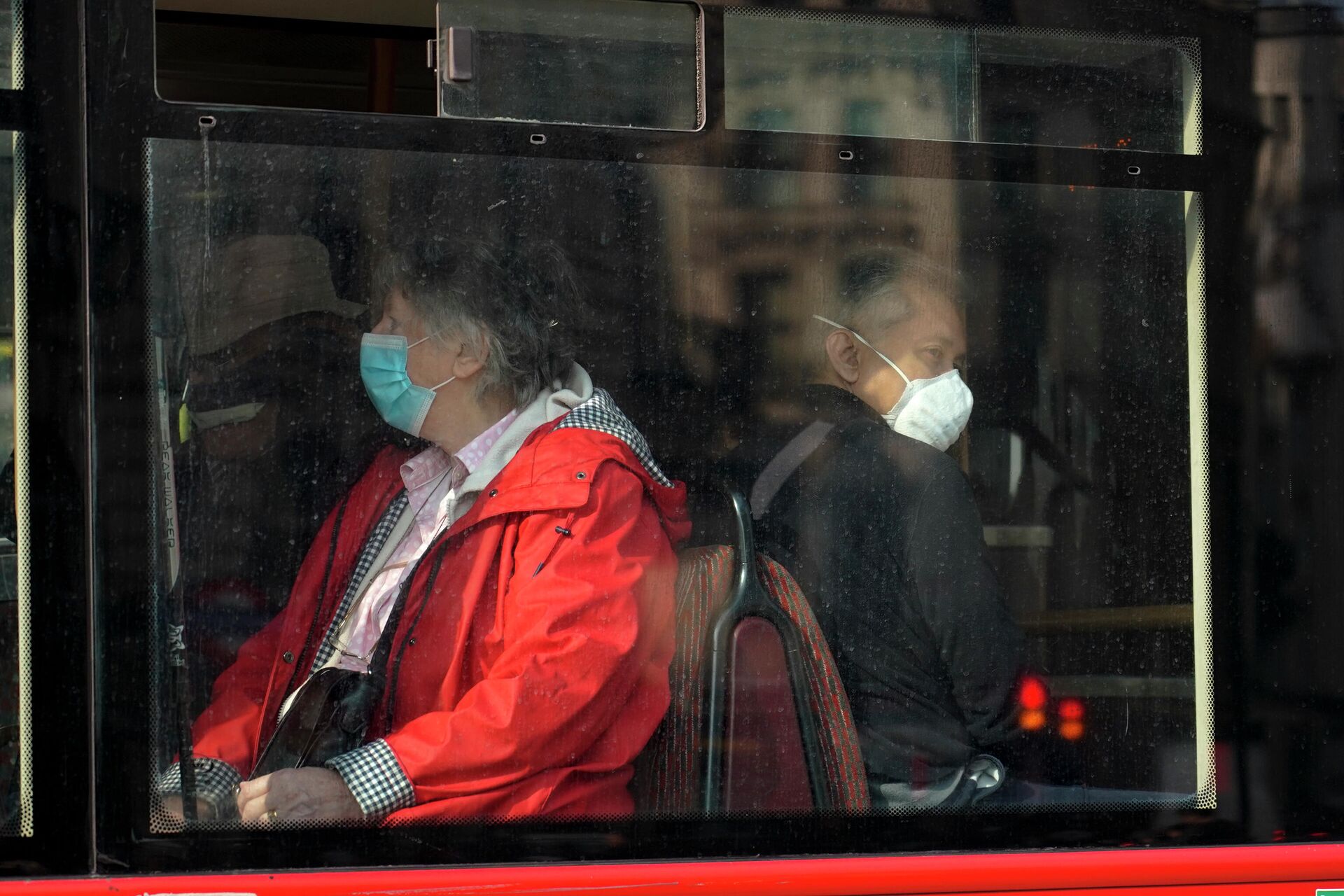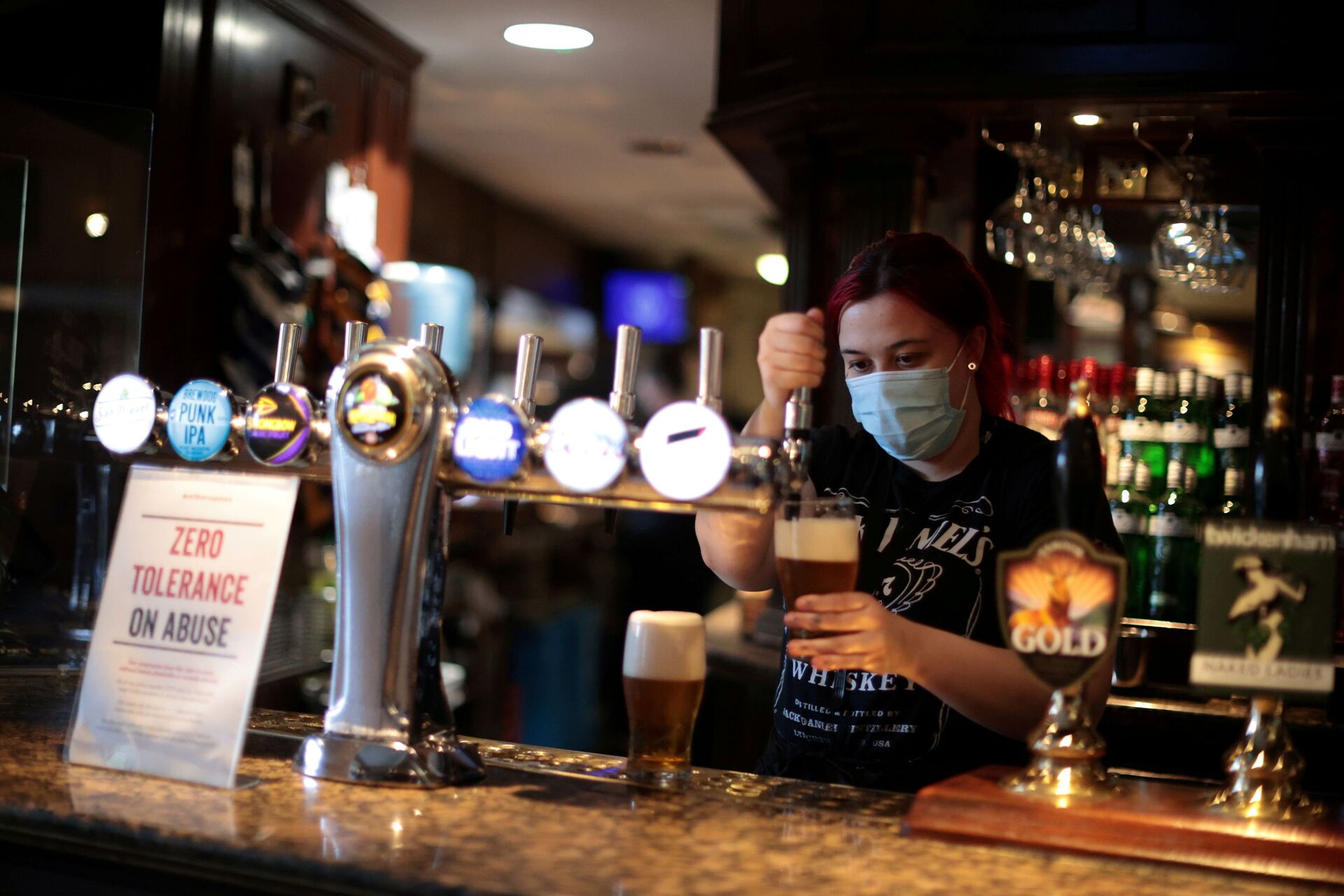UK Gov't 'Mulls COVID Plan C' to Keep Economy Open Amid Warning New Daily Cases May Reach 100,000
05:54 GMT 21.10.2021 (Updated: 15:16 GMT 28.05.2023)

© AP Photo / Alberto Pezzali
Subscribe
As 223 more COVID-19 deaths were reported on 19 October - the highest daily-reported figure in seven months – the chief executive of the UK's National Health Service Confederation urged ministers to roll out Plan B, including possible mandatory vaccine passports for mass events, to avert a potential NHS crisis.
UK government ministers are said to be considering elements of a potential plan C if COVID-19 cases continue to surge amid a lethargic vaccine booster rollout, reported The Telegraph.
Members of the Cabinet Office's coronavirus taskforce reportedly do not rule out bringing back the measures, including a ban on households mixing, which were in place for a significant period of last year. These “contingency” proposals are ostensibly being considered as a last-ditch effort to relieve pressure on the National Health Service (NHS) and dodge a shutdown of the economy, if a winter plan B is introduced, yet fails to be sufficient.
“The focus is very much on measures that can be taken without a major economic impact, so keeping shops, pubs and restaurants open but looking at other ways to reduce the risks,” a Whitehall source was cited as saying by the outlet.
While plan A – currently in place – is rooted in encouraging COVID-19 boosters and flu jabs, ministers had published a potential coronavirus “Plan B” in September. It presupposed possible mandatory vaccine passports, legally obligated face coverings in some settings and recommendations to work from home, if the NHS was found to be facing “unsustainable pressure”.
Downing Street is still hesitating to enforce its Plan B strategy for tackling the spread of the disease.
Reports of a possible plan C looming come amid concerns that people are most likely to experience prolonged exposure to the respiratory virus within their home environment. This is further compounded by fears that the currently high incidents of COVID among teenagers and children could result in a surge of cases among the older adult community.

People wear face masks as they sit on a bus, in London, Tuesday, Oct. 19, 2021.
© AP Photo / Alberto Pezzali
If a plan C were to come into force, sources suggest it would offer UK Prime Minister Boris Johnson an opportunity to allow businesses to stay open, thus avoiding crippling the economy. According to sources, the plan C discussions are at an early stage. Furthermore, it was added that the proposals will not be automatically set in place if a Plan B was set in motion but fell through.
Calls to activate ‘Plan B’
The UK government had initially announced a “winter plan” for dealing with the pandemic in September, If hospitalisations were to soar amid a sluggish pace of COVID booster jab rollout for the over-50s, “plan B” presupposed such restrictions as legally mandating face coverings in certain settings, potential introduction of vaccine passports, working from home where possible.
‘Get a booster to keep your freedoms’@sajidjavid 👇🏼 pic.twitter.com/ZAlVB3KID9
— Anonymous UK Citizen (@AnonCitizenUK) October 20, 2021
However, speaking at a Downing Street press conference on Wednesday, Health Secretary Sajid Javid emphasised that ministers would not be hurrying to reintroduce mandatory face masks and work from home (WFH) guidance “at this point”.
United Kingdom Daily Coronavirus (COVID-19) Report · Wednesday 20th October.
— UK COVID-19 (@UKCovid19Stats) October 20, 2021
49,139 new cases (people positive) reported, giving a total of 8,589,737.
179 new deaths reported, giving a total of 139,031. pic.twitter.com/gOACDOGkAE
Against the backdrop of the current surge in coronavirus cases, Javid urged those eligible for jabs to get them. As on Tuesday the UK government reported 223 more coronavirus deaths in the highest daily-reported figure in seven months, Javid said:
“We’ve got the jabs, we just need the arms to put them in… If we all play our part then we can give ourselves the best possible chance in this race, get through this winter, and enjoy Christmas with our loved ones.”
The Health Secretary warned that further restrictions would be “more likely” during winter if people failed to get vaccinated, wear face coverings in crowded places or exercise greater caution, such as opting to meet outdoors and undergo regular testing. On the same day, UK Business Secretary, Kwasi Kwarteng, said on LBC that he could “categorically rule out” lockdowns.
"We’ve worked really hard to get to the point that we could actually open up the economy,” said Kwarteng.
However, Matthew Taylor, chief executive of the UK's National Health Service Confederation, has called on the government not to procrastinate with a rollout of a Plan B for anti-Covid winter measures. Furthermore, he stated:
"Health leaders need to understand what a 'Plan C' would entail if [Plan B] measures are insufficient. The Government should not wait for Covid infections to rocket and for NHS pressures to be sky high before the panic alarm is sounded."
Taylor was cited by Sky News as saying that under a "Plan B plus", people should be recommended to wear masks, work from home, and avoid indoor gatherings.
The British Medical Association has also warned that Plan B needs to be activated. BMA council chair Dr Chaand Nagpaul was cited as saying:
"By the health secretary's own admission we could soon see 100,000 cases a day, and we now have the same number of weekly COVID deaths as we had during March, when the country was in lockdown. It is therefore incredibly concerning that he is not willing to take immediate action to save lives and protect the NHS."
As for what COVID case thresholds could trigger a Plan B, previously government scientific advisers suggested that further restrictive measures might be considered if hospitalisations soared to 1,200 a day. Currently, hospital admissions are registered at 869 daily. Last month, when daily admissions were at 600, British epidemiologist Professor Neil Ferguson told MPs that a doubling in hospitalisations could warrant triggering introduction of further control measures.

